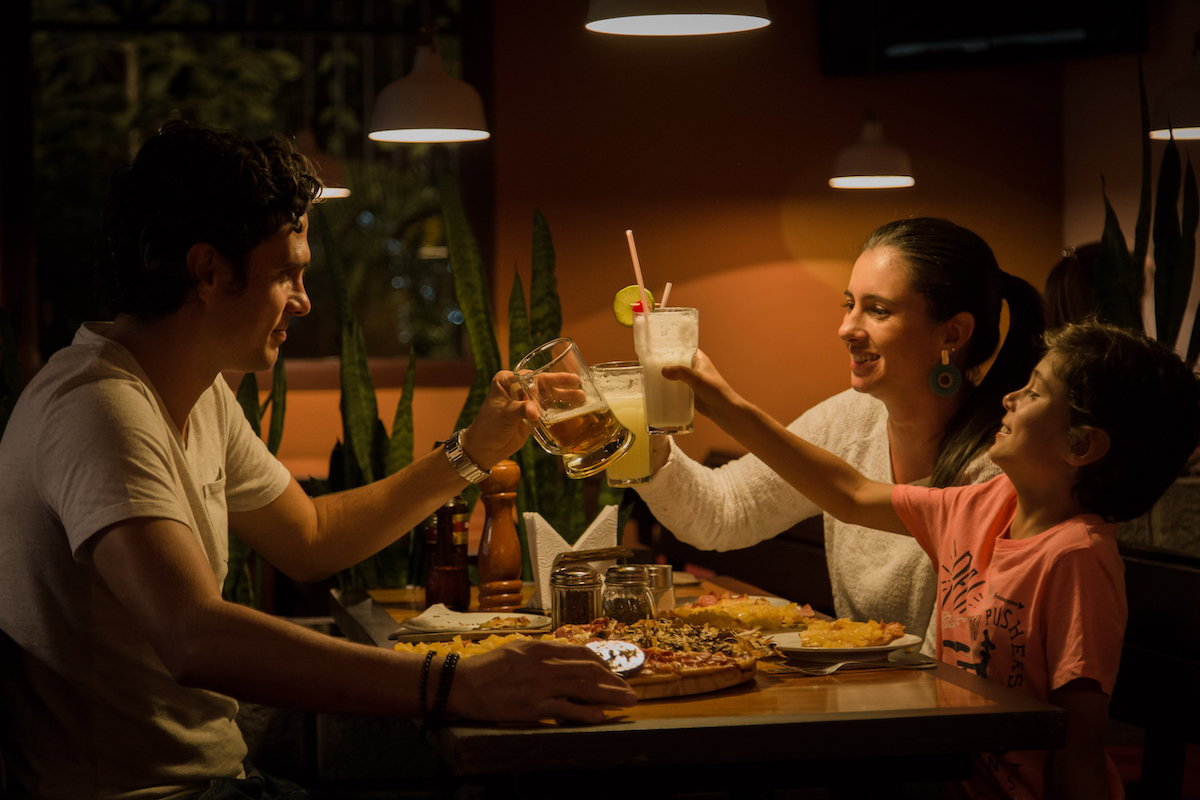
Photo by Pablo Merchán Montes on Unsplash
This article by Angela Zimmerman first appeared on Common Sense Media and has been republished with permission.
It happens every holiday: You're so caught up in shopping, traveling, cooking, and planning that you forget to focus on the stuff that really counts. From honoring family traditions and treasuring togetherness to practicing compassion and counting your blessings, the real magic far exceeds the chaos that has come to saturate the season. This year, why not put gratitude on your to-do list? You'll feel better, your kids will be happier, and it'll bring you closer together than any toy or trinket.
Gratitude is a unique character strength in that you can actually teach it to your kids -- rather than, say, crossing your fingers and hoping they'll figure it out. It's a quality that transcends religion, philosophy, culture, and ceremony and that has been scientifically proven to boost happiness.
It doesn't always come naturally, though. Kids can be self-centered -- and with the rampant consumerism at every turn of the holiday season, it can be hard for them to look beyond the shiny storefronts and their own wish lists. But by teaching, modeling, reinforcing, and nurturing gratitude, you're giving your kids a gift that will last well beyond the holidays -- and hopefully a lifetime.
You Might Also Like: How To Teach Your Children About Gratitude
Try these tips to really drive the messages home.
- Create a grateful home environment. Have a discussion with your kids about what gratitude is and what it means to feel grateful. Find natural ways to weave it into your family life, whether it's pausing before a meal or ending each day with a moment of reflection. Encourage your kids to think about what they're grateful for every single day, whether it's the sun in the sky, the fluffy family dog, or participating in the school play.
- Put the devices down and spend time together as a family around the dinner table. You don't have to keep the convo positive 100 percent of the time. But even as you discuss current events or something that happened during your kid's school day, make an effort to find something to be grateful for. You can always just say, "Thank you for sharing."
- Watch TV and movies that inspire gratitude. Television shows and movies -- especially those with relatable characters and easy-to-follow storylines -- make a big impact on kids. Use the time together to teach kids the value of being aware of and thankful for the good things in their lives -- and the rewards of taking the time to return kindness.
- Play, read, and watch together. Co-viewing and co-playing have proven benefits for kids, beyond just being fun and a bonding experience. Kids of all ages can reap the benefits of being read aloud to, and watching TV or movies as a family offers an opportunity to cuddle and share the experience of seeing and hearing the same thing. And, of course, playing video games as a family promotes teamwork, problem-solving, and perseverance -- all attributes that make for a well-rounded kid. Take advantage of these times to share your values.
- Express yourself. Say what you're grateful for -- out loud. You can make it a family ritual or privately capture thoughts in a gratitude journal. Daily, weekly, month -- any amount of time spent acknowledging all the good stuff in life is a super-beneficial habit.
- Give back. Serving others, whether it’s financially, through volunteer work, or social activism and outreach, instills in kids a sense of pride and appreciation for their blessings. Check out this list of charitable apps and sites and this list of online resources that help kids do good.
- Send thank-you notes. Sending cards through snail mail can really make someone's day, but sending online thank-you cards or an email is also a valuable way of voicing appreciation.
- Read inspiring stories. Reflecting on the hardships that people endure can really put things in perspective. Read the acknowledgements section in a book and discuss whom the author thanked and why. Need ideas? Try books about the Holocaust, memoirs, stories about social justice and grief, and books that simply inspire kids to be grateful.
- Take a walk down memory lane. Flipping through scrapbooks (hard-copy or online) or scrolling through social media memories is a fun way to look back at good times with friends and family. A birthday cake by candlelight, pics of last year’s snowstorm, two friends arm in arm … these memories are precious, and sometimes just the spark of recollection can brighten a dark day.
- Focus on the positive. Even in the midst of scary news, endless wonderful things are going on every second around the world. Counterbalance some of the sad stuff. Sites like Good News Network and Today's Good News vertical are good ones to check out.







